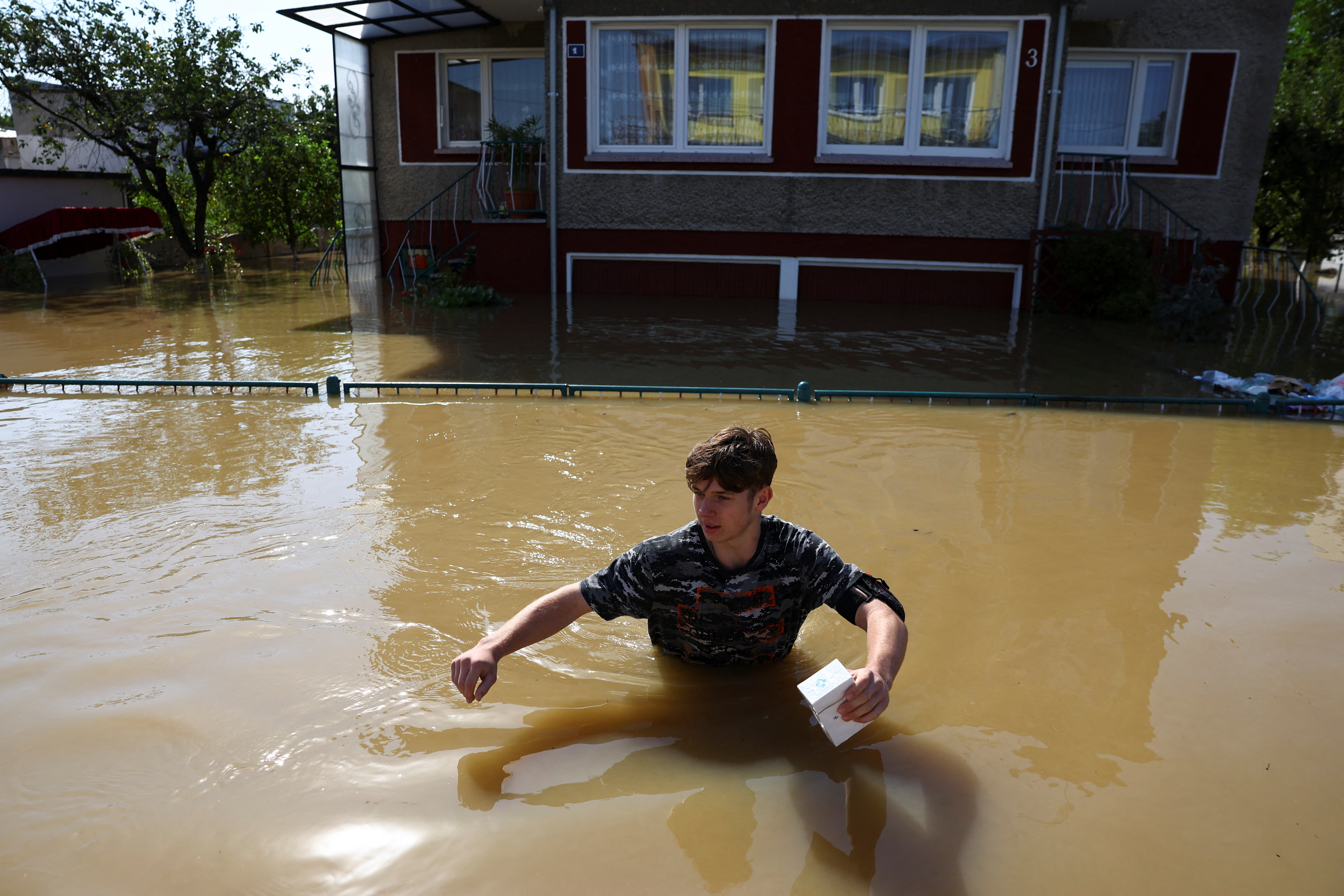Residents and emergency workers raced to secure river banks in the historic Polish city of Wroclaw on Tuesday, as they prepared for flood waters that have wreaked havoc and killed at least 21 people across central Europe to reach them.
The deluge has left a trail of destruction from Romania to Poland, and while waters were receding in many areas, others were nervously waiting for rivers to burst their banks.
The Czech-Polish border areas are among the worst-hit since the weekend, as gushing, debris-filled rivers devastated historic towns, collapsing bridges and destroying houses.
Flooding has killed seven people in Romania, where waters have receded since the weekend, six in Poland, five in Austria, and three in the Czech Republic. Tens of thousands of Czech and Polish households were still without power or fresh water.
Wroclaw, the third largest city in Poland, prepared for peaking water along the Oder and Bystrzyca rivers.
In a northern suburb, 44-year-old IT programmer Michal Nakiewicz was one of dozens of volunteers helping emergency services pile up sandbags on the bank of the Bystrzyca.
“I saw that both parents and children were helping to pour sand. I even saw 5, 6 year olds, so quite a gathering,” he said. “I think that there may not be enough hands in the services, so every pair of hands helps.”
The city’s zoo called for volunteers to help pack sandbags to protect animal enclosures and employees and volunteers began to move some of the 450,000 books from the city’s main church archive to higher floors of the Archdiocesan Archives building.
Polish authorities have filled 80% of a giant reservoir near the Czech border, aimed at cutting water levels and preventing flood peaks from coinciding on the Oder and Nysa Klodzka rivers, as happened in the disastrous 1997 floods in Wroclaw.
‘COMBAT CONDITIONS’
Overnight, volunteers helped rescue workers heave sandbags to build up the broken embankment around Nysa, a city of more than 40,000 people in southwestern Poland.
National fire chief Mariusz Feltynowski said on Tuesday that the Nysa embankment was sealed, with military helicopters joining the operation to drop sandbags.
Some residents returned to check their homes were safe after evacuations on Monday, despite assurances from Prime Minister Donald Tusk that authorities would act “ruthlessly” against looters.
“(They) assured us that services would take care of our belongings and property. But we are afraid … because we are already hearing that looters have become active,” Nysa resident Sabina Jakubowska, 45, told Reuters.
In neighbouring Czech Republic, Governor Josef Belica said 15,000 people had been evacuated in the northeastern Moravia-Silesia region, one of two badly affected. Helicopters were delivering aid to areas cut off by floodwaters.
Michal Marianek, the director of an old people’s home in the regional capital Ostrava, told Reuters staff had moved residents to a higher floor for two nights and cared for them without electricity.
“In those combat conditions we managed, provisional menus and so on,” he said, adding that residents were now being moved to other homes.
Credit rating agency Morningstar DBRS estimated losses from flooding across central Europe at between several hundred million euros to more than one billion euros ($1.1 billion).
But Belica said the damage in his region alone would reach tens of billions of crowns (over $1 billion). The Czech Insurance Association said the first estimate of the cost of flood damage on insured property is 17 billion crowns ($753 million).
In Hungary, in the towns of Visegrad and Szentendre, north of Budapest, authorities have put mobile dams in place preparing for the Danube floods.
Budapest is preparing for waters peaking near record levels, and has closed Margaret Island, a recreational area with hotels and restaurants.
Water management authorities said they were considering opening an emergency reservoir to protect Hungary’s northwestern town of Mosonmagyarovar on the Austrian border, as the Leitha river was expected to reach its highest level ever recorded.
In Slovakia, Environment Minister Tomas Taraba said the Danube had peaked at nearly 10 metres overnight and water levels would now slowly fall. He said that the damage caused by floods throughout the country was estimated at 20 million euros.







Click here to change your cookie preferences